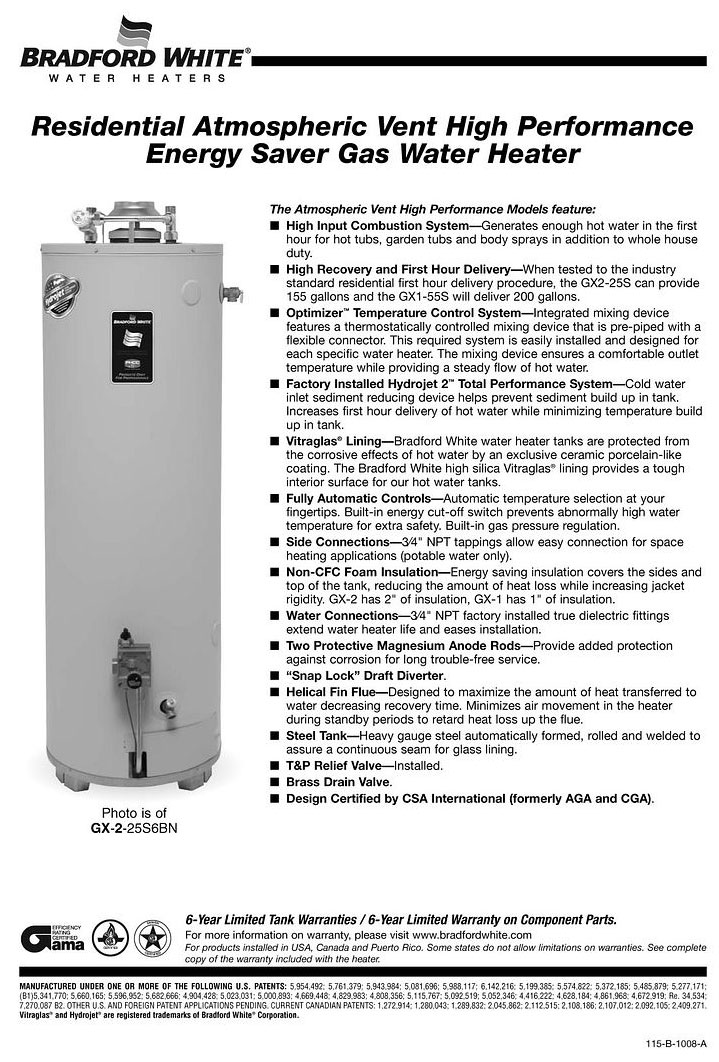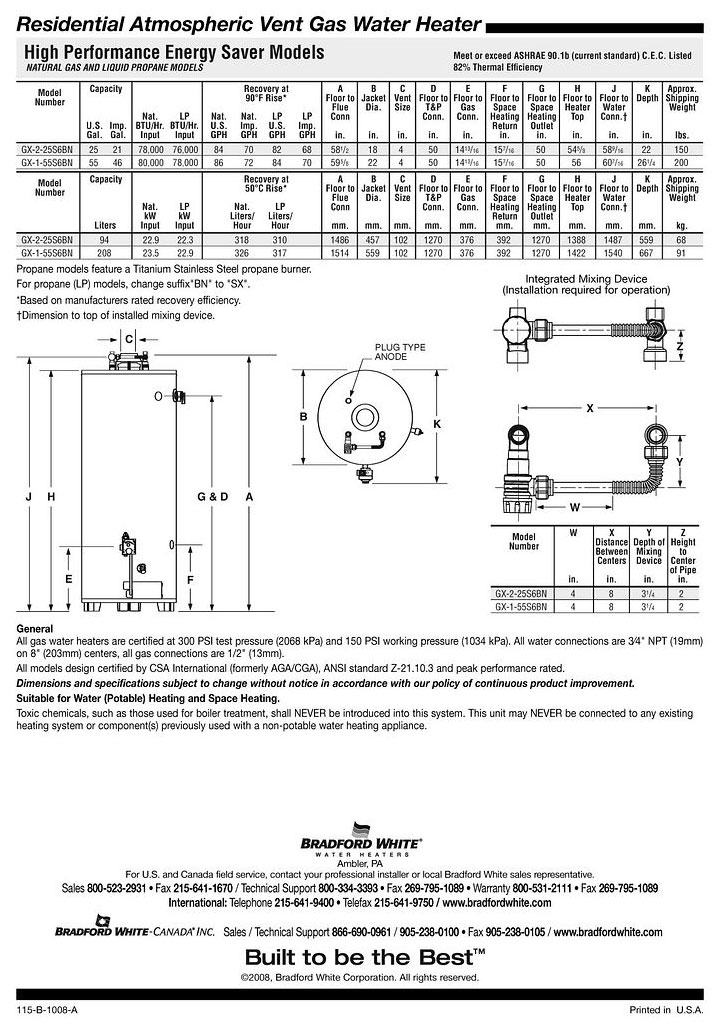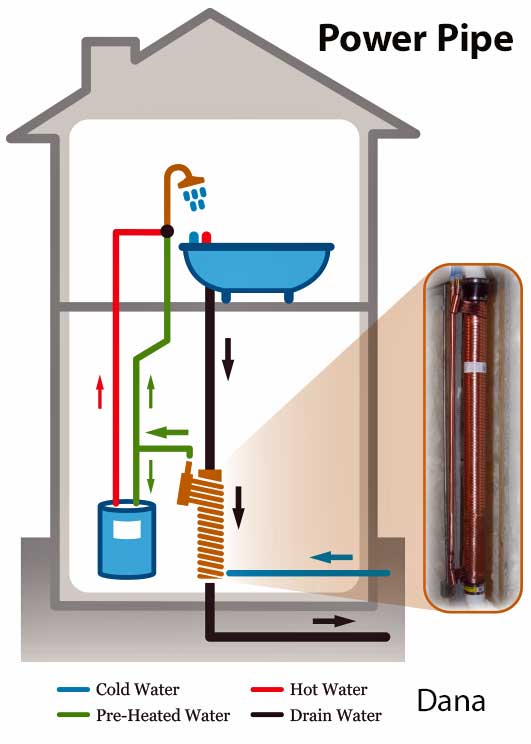Maybe 10 or 15 years from now, will see that Hybrids and windfarms were the answer. However, I suspect they will go away quietly and we'll not hear from them for much longer.

Nice to chat with you guys!
Yeah, and maybe oil will go back to $6/barrel before it hits $120/barrel again (and electricity is going to be too cheap to meter any day now, eh?) ;-)
With or without carbon taxes, unless the worldwide recession becomes permanent, energy prices will be rising before your recently installed tank HW heater craps out- count on it. North of $4/gallon people using the ubiquitous F150 as their commuter car are going to be looking at hybrids, high-efficiency diesels, compressed natural-gas vehicles, ANYTHING to keep from forking over their paycheck at the pump.
A decade from now any purchased-efficiency will be more cost effective than it is now no matter how fast we drill, even if all carbon-taxes get repealed. The developing world won't stop developing just so's we can have cheap energy. By 2040 China alone will add another USA's worth of energy consumption. It's been great while it lasted, but you can kiss cheap oil goodbye even in the intermediate term. In the short term coal-seam natural gas drilling over the past decade is starting to pay off for the US though- enjoy the prices while they last. (If Boone Pickens gets his way, cheap natural gas will be history too.)
What makes you "...suspect they will go away quietly and we'll not hear from them for much longer", anyway? Wishful thinking isn't a very good analysis of energy markets, and the effect of carbon taxes is still quite small compared to the larger market forces.
But whether & where a tankless makes sense depends on more than just the installation cost or the price of energy though.
F'rinstance...
For moderate flow, low volume (and particularly)
intermittent users even a cheap low-efficiency pilotless ignition like the Bosch 1600H can make sense. (The basic unit under the cover is now a well-evolved better working variant on the E.L.M. Aquastar from 20+ years ago, many of which are still in use with 15+ years of USA-family type loads on them. The modulation feedback is better, and the ignition system changed, but the heat exchangers & burners are nearly identical.) It's efficiency is only a few percent lower than the whole-house forced draft burners, but higher than the raw combustion efficiency (let alone EF test numbers) of a atmospheric-drafted tank. But it's still low enough that it can be vented into pretty much the same chimney as you would a tank- no need for special vent-pipe materials, and since it's a water-flow-powered magneto type ignition you don't even need to run electrical power to it.
All of this adds up to a very CHEAP installation as a tank-replacement- you may have to run fatter gas line to it, but beyond that it's about the same, and you gain the benefit of no rust-out leakage (I suppose it could happen in high acidity water), and zero standby loss, and somewhat higher combustion efficiency. I'd rather have one o' them in a weekend condo or vacation cabin than a tank- ANY tank. The downside is somewhat limited flow- in a New England winter you can't run both the dishwasher & laundry while someone is taking a shower and not hear about it. (Output is only ~100KBTU/hr- plenty for a shower even with 40F inlet water, but don't push your luck!)
An atmospheric drafted tank with a standing pilot is going to run over 75 therms/year in standby losses. The cheapo Bosch loses less than 10 (and then only if used regularly- in long term standby the standy loss is truly zero.) And when in use, well over 70% of the energy ends up in the hot water, compared to ~60-65% for a pretty good tank, if (and only if) there's 60gallons/day running through it. It doesn't take high math to figure out how long it has to last to have paid for itself in fuel-savings alone.
Then when you figure that you can have 5 or even 10 people in succession taking showers without running out of hot water... There are plenty of situations where they make sense, independently of globule-warming carbon-crap or nickel-squeezin' on fuel. Zero recovery time is nice!
I've recommended this very unit to several people for these very reasons, with the same caveats to boot. None of them have tracked me down to complain... ( ...yet.

)
Tankless water heaters aren't new (they're about ~100 years old), just new(er) to the US market. In Europe they became the standard primarily for space-savings. For decades many had to be lit by hand and didn't automatically modulate flame to flow, but modulating versions with mechanical feedback have been around for at least 30 years. It's the 80%+ efficiency high-output versions with all of the electronic controls that try to serve multiple simultaneous & significant flows that are (relatively) new, but even those now have a decade of track record behind them with few nightmare scenarios.
I'm not say they're for everybody, but I've yet to meet anyone who switched over from a tank to a tankless and regretted it later.
But me, I'm still for using bigger-burner tankless heaters as heating system boilers, getting the hot water from an indirect-fired tank that also acts as the heating system's buffer tank. Most components of the tankless will last longer with far fewer ignition & burn cycles per day/year/decade (you may not get a full 25 years out of the heat-exchanger though), and with very low mass it's standby & cycling losses are far lower than cast-iron boilers. Properly designed & set up, you'll get significant modulation efficiency benefits out of them too, further reducing cycling losses. Again, not for everyone (but not a terrible option for many.) But just retrofitting an indirect-as-buffer-tank onto an existing hydronic boiler would usually be a cheaper & more efficient option than adding a tankless (or tank) hot water heater.




